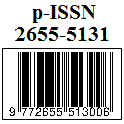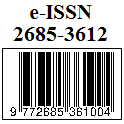Peran Majelis Kehormatan Notaris Terhadap Terbukanya Rahasia Jabatan Notaris Dalam Menjalankan Jabatan Publik
Abstract
A notary, both as a public official and as a person who is trusted for his mandate, must uphold the confidentiality of his position, including legal deeds and documents and all information he or she obtains in the process of drafting such deeds and documents, as regulated in Article 19 paragraph (1) point (f) of the UUJN/2014, and as stated in the notarial oath. The confidentiality of his or her position can be revoked if he or she shares a copy of the deed or make official statements in relation to the deed to and by the request of law enforcement officers, including Investigator, Prosecutor, and Judge. This can result in a notary being disbarred as regulated in Article 16 paragraph (11) of the UUJN/2014, or even imprisoned as regulated in Article 322 paragraph (1) of the Criminal Code, except when the privilege is revoked due to legal orders and is carried out by the notary for the common good and law enforcement process, while still upholding the oath and the rights to confidentiality (denial rights and renunciation of Notary). In line with such reality, the Notary Honorary Council (MKN) will determine whether they approve or disapprove the request for a copy of the deed and/or all relevant information as stated in the request from Investigator, Prosecutor, Judge to MKN. However, before MKN makes any decisions, they should conduct an examination of the notary as a form of legal protection for MKN against the confidentiality of the notary’s position, concerning the contents of the deed and all information/ statements obtained by the notary from the parties entrusting him in the making of the deed.













